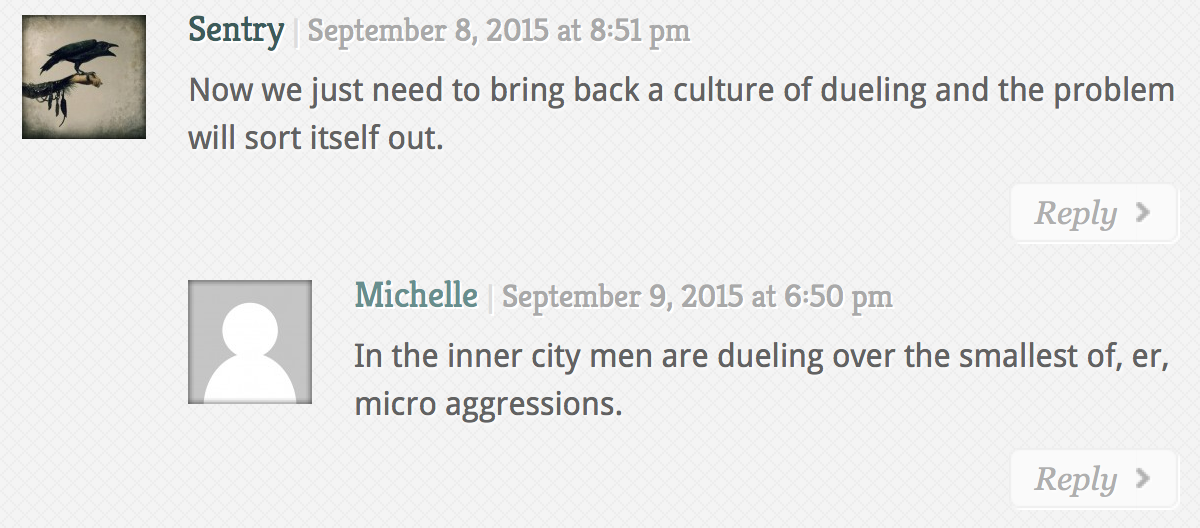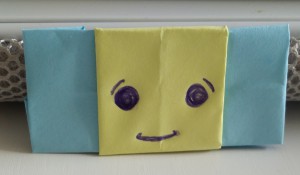Surprise: heavy use of social media is highly correlated with depression (actual study). o.O But they’re not yet sure which is the cause and which is the effect. They provide arguments for both.
Tag: Science
Babies Know, They Don’t Know
It looks like babies at the age of 19-21 months already have a concept of when they don’t know something and ask for help if it’s available.
Internet > Alkohol
Eine representative Umfrage besagt, dass Deutsche eher bereit sind auf Alkohol als auf das Internet zu verzichten. ?
Akatsuki Origami
Yay, Oxytocin
Leaky Apps
How much data are the most popular apps on Android and iOS leaking to third parties (i.e. people who have nothing to do with the app you’re using). A LOT!
Inner City “Dueling” Over “Micro Aggressions”
From the comments section of a summary of a paper called “Microaggression and Moral Cultures“:

Re: In the inner city men are dueling over the smallest of, er, micro aggressions.
TMMD ?
In Vino Veritas … At Least Untill You Have To Pee
Who would have thought the lies we tell are more convincing when we need to pee.
I’m watching out for sentences like this in the news: ?
[…] complained they were subjected to ‘forced urination’ before they were interrogated by the TSA.
The actual paper.
Abstract: The Inhibitory-Spillover-Effect (ISE) on a deception task was investigated. The ISE occurs when performance in one self-control task facilitates performance in another (simultaneously conducted) self-control task. Deceiving requires increased access to inhibitory control. We hypothesized that inducing liars to control urination urgency (physical inhibition) would facilitate control during deceptive interviews (cognitive inhibition). Participants drank small (low-control) or large (high-control) amounts of water. Next, they lied or told the truth to an interviewer. Third-party observers assessed the presence of behavioral cues and made true/lie judgments. In the high-control, but not the low-control condition, liars displayed significantly fewer behavioral cues to deception, more behavioral cues signaling truth, and provided longer and more complex accounts than truth-tellers. Accuracy detecting liars in the high-control condition was significantly impaired; observers revealed bias toward perceiving liars as truth-tellers. The ISE can operate in complex behaviors. Acts of deception can be facilitated by covert manipulations of self-control.
Moral parents, moral babies
Ars again covers interesting research on the psychology toddlers. This time: toddlers with parents with lower tolerance to injustice show stronger differences in EEG-readings when watching prosocial vs. antisocial behavior.
It also has a discussion on how difficult it is to do a “psychological” assessment of toddlers’ behavior and derive concrete explanations or conclusions from them.
The Trick of Hope
I often tell myself and my students: medicine is the most human of all the sciences that is stuck with the least human of all the experiments: and that is the randomized trial.
Randomization doesn’t exist because doctors are malign or medicine is nasty it exists precisely for the utterly opposite reason: because we hope too much.
We’re so hopeful, that we want things to work so badly-especially against cancer-we want things to work so badly that we’ll trick ourselves to believing that they’re working.
And there’s nothing as toxic or as lethal as that trick: the trick of hope.
— Dr. Siddhartha Mukherjee in PBS’ Cancer: The Emperor of All Maladies

